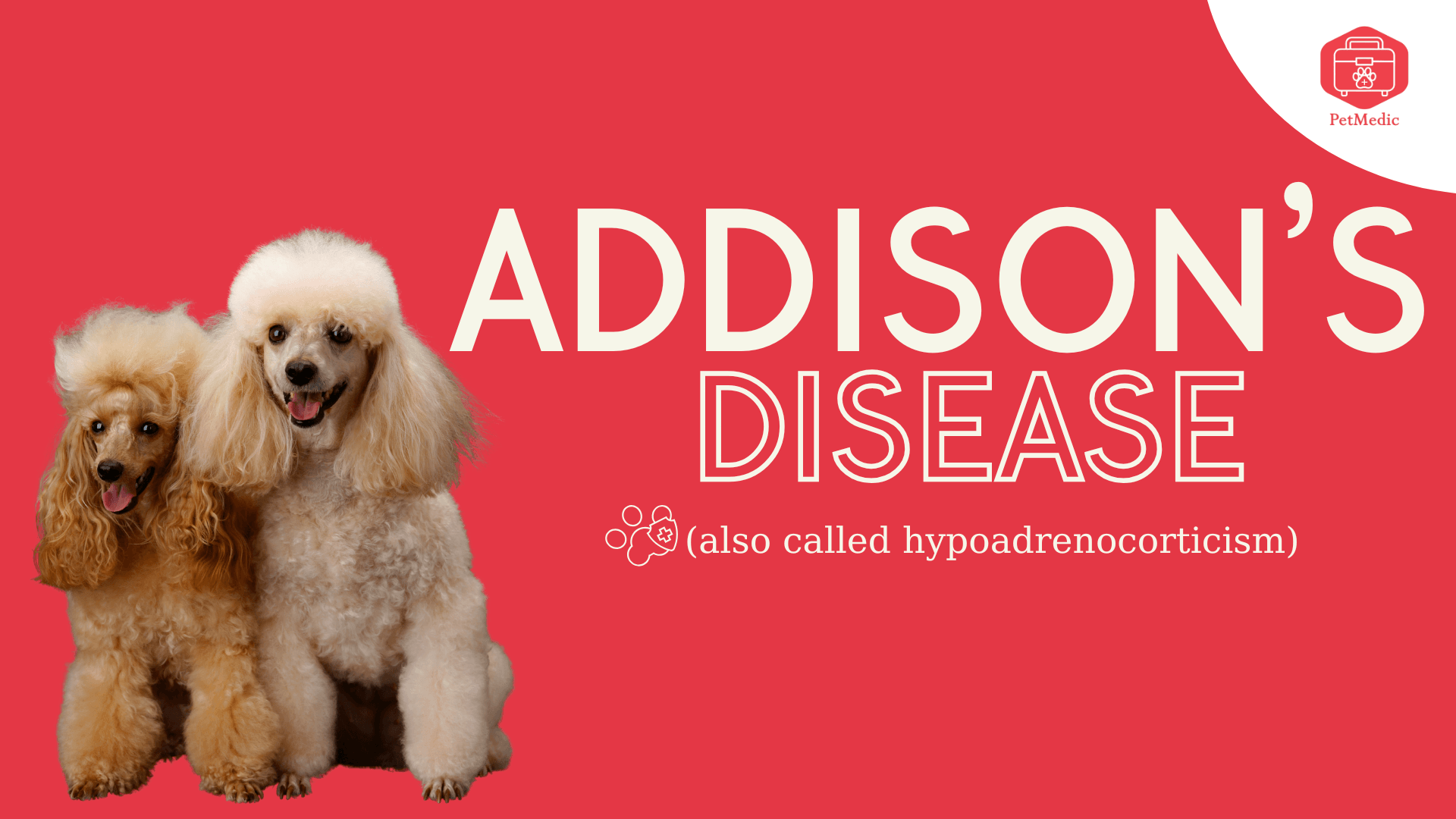Addison’s Disease in Pets – What Every Pet Owner Should Know

Addison’s disease (also called hypoadrenocorticism) is a health condition that happens when your pet’s body doesn’t make enough important hormones from the adrenal glands — especially cortisol and aldosterone.
These hormones help the body respond to stress, maintain fluid balance, and regulate electrolytes like sodium and potassium.
While it’s not very common, Addison’s disease can be very serious if not treated — but with the right care, pets can live happy, normal lives.
Who Gets Addison’s?
- Most often seen in young to middle-aged dogs (especially females)
- It’s rare in cats, but can happen
- Some breeds may be more at risk (like Poodles, Bearded Collies, and Portuguese Water Dogs)
Signs to Watch Out For
Addison’s can be hard to spot because the signs are vague or come and go. You might notice:
- Lethargy or weakness
- Vomiting and diarrhoea
- Loss of appetite
- Weight loss
- Shaking or trembling
- Drinking or urinating more than usual
- Collapse (especially during stress or after excitement)
- Pale gums or slow recovery after exercise
Some dogs show signs suddenly in what we call an Addisonian crisis — a medical emergency where the pet collapses and goes into shock.
How Do We Diagnose It?
Because the symptoms can mimic many other illnesses, diagnosis can take time.
Your vet may run:
- Blood and urine tests (to look at sodium, potassium, kidney values)
- ACTH stimulation test – a special hormone test that checks adrenal function
- Possibly an ECG or ultrasound if needed
How Is Addison’s Treated?
Addison’s is treatable but requires lifelong management.
For stable cases:
- Pets are given daily steroids (to replace cortisol)
- Some pets also need a monthly injection (like Percorten-V or Zycortal) to replace aldosterone
In a crisis, your pet will need IV fluids, electrolytes, and emergency care to stabilize them.
Long-Term Management
Once your pet is stable, they’ll need:
- Lifelong medication
- Regular check-ups and blood tests
- Medication dose changes during stressful events (like travel, surgery, or illness)
With consistent care, most dogs with Addison’s do very well.
When to Call / Visit Your Vet
If your dog shows signs like:
- Sudden weakness or collapse
- Vomiting and diarrhoea that doesn’t stop
- Not eating or drinking
- Seeming “off” after stress
Don’t wait — Addison’s can be serious, but it’s manageable if caught early.
Addison’s disease is known as the ‘great pretender’ because it looks like so many other things — but once diagnosed, it’s one of the most rewarding conditions to treat. With the right care, your dog can live a full, happy life.
